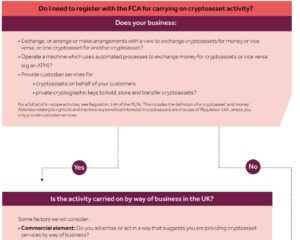
The European Securities and Markets Authority (ESMA), the European Union’s markets regulator, released an article on Decentralized Finance (DeFi) and its risks for the EU Market on Oct. 11.
In a 22-page report, the ESMA admits the promised benefits of DeFi, such as greater financial inclusion, the development of innovative financial products, and the enhancement of financial transactions’ speed, security, and costs.
However, the paper also highlights the “significant risks” of DeFi. According to ESMA, the first one is the liquidity risk tied to the highly speculative and volatile nature of many crypto-assets. The regulator compares the 30-day volatility of Bitcoin or Ether and the Euro Stoxx 50, with the former being on average 3.6 and 4.7 times higher than the latter.
The ESMA doesn’t believe that DeFi managed to avoid the counterparty risk, even if, in theory, it should be lower or even non-existent due to smart contracts and atomicity. Yet, smart contracts are not immune to errors or flaws.
Related: EU mulls more restrictive regulations for large AI models: Report
DeFi is especially vulnerable to scams and illicit activities as it lacks know-your-customer (KYC) protocols. Another important source of risk for DeFi users, as specified in the report, is the lack of an identifiable responsible party and the absence of a recourse mechanism.
But, at this point, DeFi, and crypto in general, do not represent “meaningful risks” to financial stability, the report concludes. That is because of their relatively small size and limited interconnectedness between crypto and traditional financial markets.
The ESMA pays close attention to the crypto market, releasing its second consultative paper on Markets in Crypto-Assets (MiCA) mandates on Oct. 5. In a 307-page document, the regulator suggested allowing crypto asset providers to store transaction data in “the format they consider most appropriate,” if they can convert it into a specified format should the authorities request it.
Magazine: Blockchain detectives: Mt. Gox collapse saw birth of Chainalysis
- SEO Powered Content & PR Distribution. Get Amplified Today.
- PlatoData.Network Vertical Generative Ai. Empower Yourself. Access Here.
- PlatoAiStream. Web3 Intelligence. Knowledge Amplified. Access Here.
- PlatoESG. Carbon, CleanTech, Energy, Environment, Solar, Waste Management. Access Here.
- PlatoHealth. Biotech and Clinical Trials Intelligence. Access Here.
- Source: https://cointelegraph.com/news/crypto-european-regulator-de-fi-significant-risks-benefits
- :is
- :not
- 11
- 50
- 7
- a
- According
- activities
- AI
- AI models
- Allowing
- also
- an
- and
- Another
- appropriate
- ARE
- article
- AS
- asset
- At
- attention
- Authorities
- authority
- average
- avoid
- BE
- because
- being
- believe
- benefits
- between
- birth
- Bitcoin
- CAN
- Close
- Cointelegraph
- Collapse
- comes
- Consider
- contracts
- convert
- Costs
- Counterparty
- crypto
- crypto asset
- Crypto Market
- crypto-assets
- data
- decentralized
- Decentralized Finance
- decentralized finance (DeFi)
- DeFi
- Development
- do
- document
- Doesn’t
- due
- enhancement
- Errors
- ESMA
- especially
- Ether
- EU
- Euro
- Europa
- European
- European Securities and Markets Authority (ESMA)
- Even
- finance
- financial
- financial inclusion
- financial products
- financial stability
- First
- flaws
- For
- format
- Former
- General
- Gox
- greater
- higher
- highlights
- highly
- HTTPS
- if
- illicit
- immune
- important
- in
- inclusion
- innovative
- interconnectedness
- into
- IT
- ITS
- jpg
- KYC
- Lack
- large
- Limited
- Liquidity
- lower
- managed
- many
- Market
- Markets
- mechanism
- MiCA
- models
- more
- most
- MT
- Mt. Gox
- Nature
- Oct
- of
- on
- ONE
- or
- Paper
- party
- pays
- plato
- Plato Data Intelligence
- PlatoData
- Point
- Products
- promised
- protocols
- providers
- regulations
- regulator
- relatively
- releasing
- report
- represent
- request
- responsible
- Restrictive
- Risk
- risks
- saw
- scams
- Securities
- security
- should
- significant
- Size
- small
- smart
- Smart Contracts
- Source
- specified
- speculative
- speed
- Stability
- store
- such
- than
- that
- The
- their
- theory
- they
- this
- Tied
- times
- to
- traditional
- transaction
- users
- volatile
- Volatility
- Vulnerable
- WELL
- with
- yet
- zephyrnet











